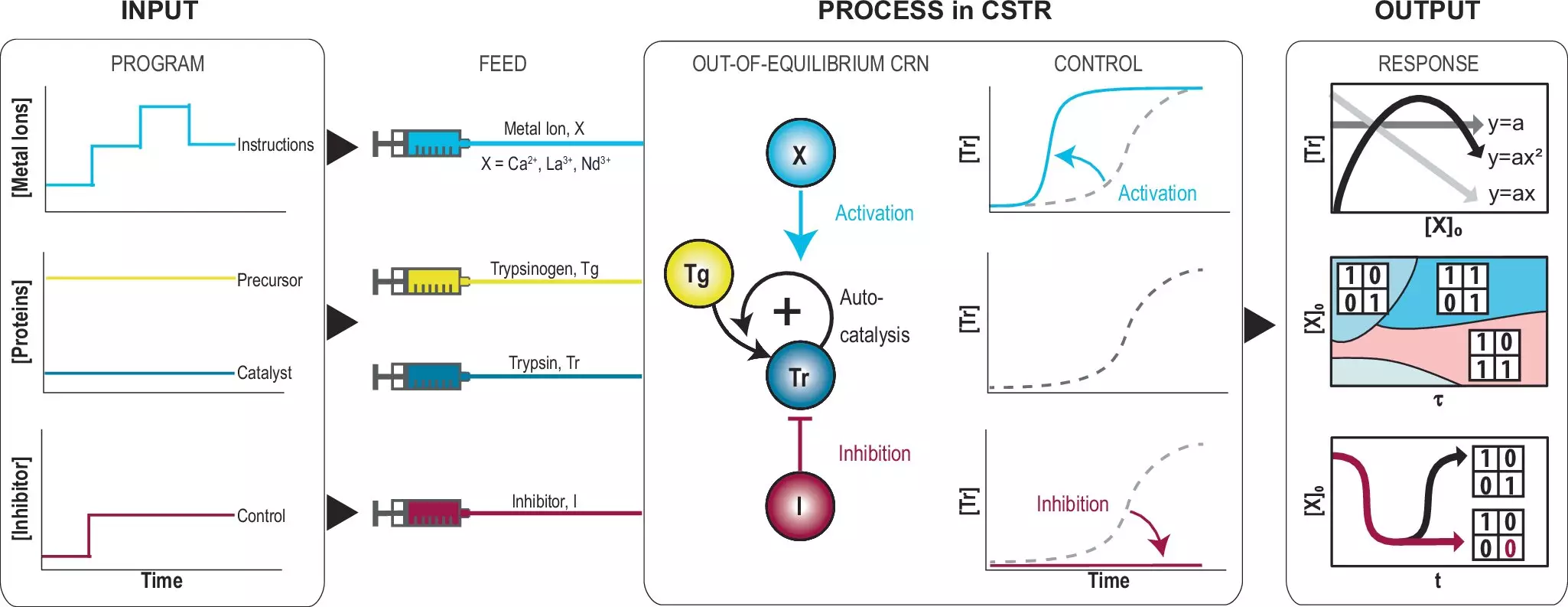At the forefront of scientific exploration, researchers from the University of Twente have unveiled a revolutionary method to control chemical reactions with remarkable precision through the manipulation of metal ions. This groundbreaking work, recently disseminated in *Nature Communications*, holds the potential to pave the way for computing systems that mimic the operational efficiencies of the human brain. By mirroring the natural processes through which living organisms interact with and adapt to their environments, these findings challenge the traditional frameworks of digital computers, which tend to consume significantly more energy.
Living organisms execute a variety of intricate chemical reactions to process information and respond to their environments. It is within this realm that researchers have long sought to understand and replicate the seamless, energy-efficient processes observed in nature. The researchers at the University of Twente took a monumental step forward by successfully implementing complex mathematical functions using metal ions. Their work incorporates essential concepts, such as polynomials—including linear equations and parabolic functions—and Boolean logic, which allows for varied outputs derived from specific inputs.
A pivotal aspect of this study is the researchers’ ability to program these chemical reactions not just to react to present circumstances but also to “remember” past interactions. Dr. Albert Wong, a key researcher in the project, notes, “We have found a possible building block for intelligent systems.” This is significant because it provides a insights into developing systems capable of storing and retrieving information, reminiscent of neural processes. The researchers successfully manipulated the dynamics of autocatalytic reactions, which are self-accelerating, by converting trypsinogen into trypsin with the introduction of substances that modulate this transformation.
Potential Applications Beyond Traditional Computing
This newly devised mechanism demonstrates the capability of chemical systems to exist in dual states, fostering a temporary form of memory. This innovation is exciting for not only advancing artificial intelligence but also holds implications for the future of smart materials and artificial neural networks. The ability to program chemical networks to harness memory creates fertile ground for applications that can adapt and evolve, pivoting toward intelligent systems with unprecedented potential.
Moreover, this research opens avenues in other significant scientific domains like nanobiotechnology and the study of the chemical origins of life—key areas where understanding the foundational elements of life and intelligence could revolutionize the manner in which we approach biological sciences and synthetic biology.
As the University of Twente’s pioneering research suggests, the interplay between metal ions and chemical reactions may hold the key to achieving advanced computer systems inspired by natural intelligence. This transformative approach not only redefines computational methodologies but also enriches our understanding of chemical processes that underlie life itself. As researchers continue to explore these concepts, it is increasingly clear that the synergy between chemistry and intelligent systems could herald a new era in technology and scientific discovery.


Leave a Reply